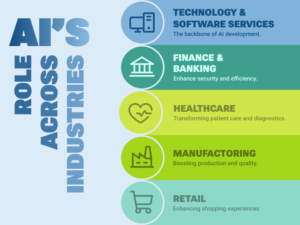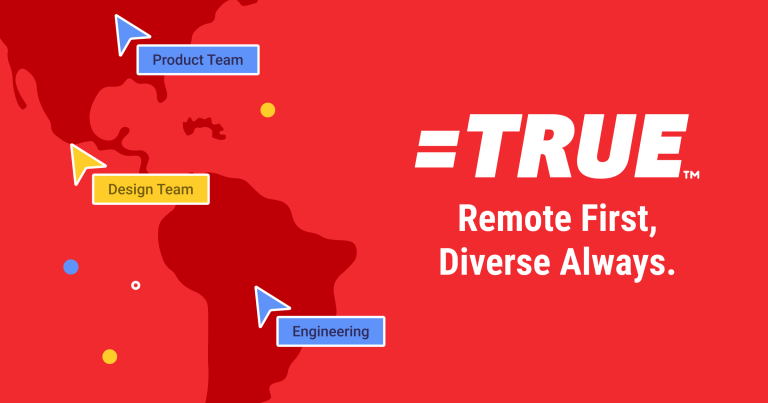Have you ever wondered how AI is going to impact your job? As someone who works remotely, I understand the uncertainty and concern that many of us feel about the future of our careers. The rapid advancement of AI technologies is reshaping the global job market, leading to both job displacement and the creation of new roles. And probably like you this pace of hyper innovation and change has me wondering about my professional future. I get the “why” of AI, but the “how” of change unfolding and the “what” will ultimately be changed are question marks in my diet of anxiety.
What seems to be clear is that we all need to prepare in some way for the job market of the future. But I’m going to advocate a lens of opportunity, not FOMO or the sky is falling. And hopefully by the end of this article you’ll have a clearer understanding of how to prepare for the AI-driven future.
The growing investment in AI
It’s no secret that AI is rapidly changing the business landscape. The amount of money being poured into AI shows just how big this change is and will be. In some projections the investment in AI will exceed the GDP of many countries. Just look at a recent Business Insider article, the big tech companies (Google, Microsoft, Meta, Apple, Amazon, etc) are on pace to spend over $1 Trillion USD by 2029 on AI. Yes, I said Trillion. Translation; AI is here to stay. But this massive investment isn’t just about creating new AI tools—it’s also about generating a lot of new job opportunities as companies expand their AI capabilities.
AI’s potential to automate job functions is a when, not if, statement. With estimates suggesting that by 2030, AI could automate 30% of current work hours in the US. This means many jobs will change, with a shift towards more strategic, critical, and creative roles. Roles that could be characterized as functions that need the “human touch”. And while that might seem limiting, it actually might lead to far greater professional fulfillment.

The AI industry is expected to be worth $190 billion by 2030, showing just how widespread and influential AI will be in the job market.
The value of emotions
Coding this, prompted the rapid rise of AI technology has made us forget how invaluable human emotions are in the workplace. Even though AI is able to “emulate” human emotions it cannot fully grasp how powerful these are.
Our emotions are deeply connected to how we interact with others, the decisions we take and the great satisfaction of actually making a difference in our workplace and eventually in the world. A great example of this is shown in teambuildings, doing silly activities that make you show your true colors and share stories that explain a lot about yourself. In essence, emotions are the heart and soul of effective teamwork.Why shouldn’t you let this slip by? Emotions not only enhance collaboration and productivity but also foster a sense of belonging and safety that no amount of technology can replicate.
➡️ You may like our article about creating safety in your hiring. Check it out.
Human Powered
With these changes, the demand for certain skills will skyrocket. General technical skills related to AI, such as programing, data science, statistics, and math, will be crucial. For software engineers, proficiency in development languages like Python and Rust, as well as familiarity with machine learning platforms will be highly valued. Additionally, understanding cloud security, data structure, and automation will also prove useful. But what about the rest of us? What happens if you are not a software engineer?
What is starting to emerge is that beyond technical expertise, creativity and soft skills will also play a vital role in the AI-driven job market. The abstract of what makes us human is (ironically) what will be most valued in the workplace of the future. And it doesn’t matter what your professional area might be, all of our human powered attributes will be our carbon based flex on the jobs of tomorrow. The limbic primitive brain that we all have will re-emerge as our guardian of survival and how we feel will define the line between AI and Human work. These are just a few of the spaces where Humans will show up as the preferred platform.
Medicine
While AI will undoubtedly impact the areas of research and patient care efficiency, a machine will never be able to comfort a dying patient, or reassure a worried parent about a sick child. Furthermore an AI chatbot will never be able to relate to human problems that require therapy from an experienced mental health professional.
Child Care
Most new parents barely trust the baby monitor to inform them about their newborn. And I would not have wanted my son to imprint on a machine at any point in his life. Only humans can raise and nurture another human being. For certain AI will assist the learning and development of a child, but I don’t see AI getting an apple on the first day of school.
The Arts
It’s true that AI’s greatest impact so far has been in the creative world. AI has generated many unique visuals, videos, and songs through simple text prompts….and some of them were not horrible. But as demonstrated by the reaction to AI finishing the work of Keith Harrington, it does not possess the soul of a true artist. And I don’t think it ever will. True imagination and creativity that touches our emotions will always be human generated.
Marketing
Marketing is all about understanding and connecting with the needs of people. And while AI and other tools can analyze data and predict trends, building real connections with customers past the impression requires understanding of what moves a person. AI will prove useful for automation and research but never understand the power of a quote like “Just Do It”, or by a Burkin is covered over all others. Connecting with emotion is a job for humans and it always will be.
Account Management
Is there anything more valuable than your customers? If you are spending large sums of money on a product or service don’t you want to speak with a real person. We have all been caught in “automated phone tree hell” when trying to get answers on flight reservations, ad spend, or our cable service. The companies that do not use AI to take care of their customers will have enormous competitive advantage.
Emergency Services
The ability to soothe a scared person, make quick life-saving decisions with limited information, and show empathy and courage under pressure are uniquely human traits. Firefighters, paramedics, and police officers depend on their intuition, experience, and compassion to handle emergencies effectively. Heros are people not machines.
Government
Morals, empathy, common sense. Even though it seems some of our leaders don’t have these skills nowadays, they’re essential for governing and as we’ve said before, AI lacks all of them. Government has been a four letter word for decades, but perhaps AI will spur us all to get more involved with our communities, laws, and national priorities. I think we all can agree that a breath of fresh air is needed in all areas of government.
Major/Life/Financial Decisions
When a pilot senses that an airplane is malfunctioning they don’t leave the autopilot on. Giving up control when something important is on the line is not really in our nature. We are always going to want to be at the top of the decision tree. Human nature prevails here.
Embracing the Future with Confidence
Short of a brain transplant, people will always crave comfort, validation, creativity, beauty, and security from their fellow humans. And these primal needs present themselves in very real ways all over the human condition. So as we navigate the ever-evolving landscape of the AI-driven job market, it’s clear that our humanity will be indispensable for future success. To figure out our place we need to focus on the areas of our professions that require creativity, intuition, empathy, life experiences, and human-to-human interaction. Then grow our masteries of these areas while simultaneously deploying AI to make us more efficient and free us from the mundane.
People and life are precious. No tech will ever change that math.
As we wrap up, I invite you to join the conversation. Share your thoughts, experiences, and aspirations for the future of work in the comments below or on our social media. Let’s learn from each other and support one another as we navigate this transformative journey together.
Copyright © 2024 EQUALS TRUE. All Rights Reserved.





